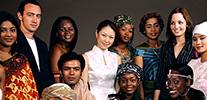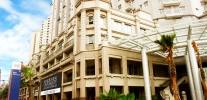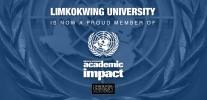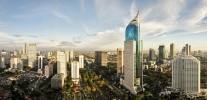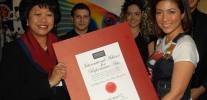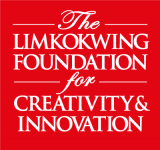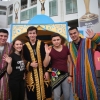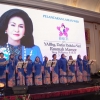
Comoros is an archipelago of islands located in the east coast of Africa. Inhabitants of Comoros come from famous stock of Arab traders, Persians, Africans and Portuguese making its culture as rich and attractive as its nature.
Being strategically located in the Mozambique Channel by the Indian Ocean, Comoros has played a central role in commerce among African, European and the Arab worlds.
Society, Beliefs and Language
Comoros’ population of 794,678 people is made up of five ethnic groups – the Antalote, Cafre, Makoa, Oimatsaha and the Sakalava. In the islands, Arab and Persian influences are the most evident, and about 98% of Comorians are Sunni Muslims. Other religious groups such as Shia Muslims, Roman Catholics, Jehovah’s Witnesses, and Protestants constitute 2% of the population.
Diversity is also apparent in many prevalent languages used in Comoros including French, Comorian, Arabic, and Swahili. All Comorians receive a Koranic education and learn to write their language in Arabic characters. Formal education is given in French.
Fashion, Cuisine and Music
Comorian women wear lively coloured long dresses and skirts called Shiromeni. Another traditional way of dressing up for Comorian women is the use of sandalwood and coral paste as a beauty mask on their faces.
Men wear colourful long skirts, a long white shirt and Koffia – a skull cap that has a high value among the people of the Comoros.
Comoros is historically linked to East Africa and France, therefore Zanzibar’s taarab music remains the most influential genre on the islands. Traditional Comorian music makes use of instruments such as the oud, the violin and the msondo.
Economy
According to the World Factbook, agriculture accounts for 50% of Comoros’ GDP and employs 80% of the labour force. It also provides most of the exports. Export income is heavily reliant on the three main crops of vanilla, cloves, and ylang ylang (perfume essence).
Comoros’s new government looks to provide basic services, upgrade education and technical training, privatise commercial and industrial enterprises, improve health services, diversify exports, promote tourism, and reduce the high population growth rate.
This article is part of a series highlighting the unique cultures featured in the recently concluded Limkokwing International Cultural Festival 2017.

